- Home
- Kathryn Lasky
Christmas After All
Christmas After All Read online
Cover
Title Page
Dedication
Indianapolis, Indiana, 1932
November 25, 1932
November 26, 1932
November 27, 1932
November 28, 1932
November 29, 1932
November 30, 1932
December 1, 1932
December 2, 1932
December 3, 1932
December 4, 1932
December 5, 1932
December 6, 1932
December 7, 1932
December 8, 1932
December 9, 1932
December 10, 1932
December 11, 1932
December 12, 1932
December 13, 1932
December 14, 1932
December 15, 1932
December 16, 1932
December 17, 1932
December 18, 1932
December 19, 1932
December 20, 1932
December 21, 1932
December 22, 1932
December 23, 1932
December 24, 1932
December 25 — Christmas Day!
Epilogue
Life in America in 1932
Historical Note
About the Author
Acknowledgments
Other books in the Dear America series
Copyright
November 25, 1932
Indianapolis, Indiana
The day after Thanksgiving
Mama and Papa believe in cold. That’s why I tell Lady we have nothing to fear. You see, Mama and Papa have toughened us up on the sleeping porch. That’s where we sleep with no heat and just screens, and not just in summer but all through the fall and beginning again in early spring. We’re used to cold. But now we’re going to be hardened off for the rest of the year in the rest of the house.
You see, Mama and Papa are closing off the dining room and the big library and four bedrooms. We are moving the dining table into the living room. Ozzie will sleep in what he calls his “lab,” which is really a closet. Lady and I will be in his bedroom. It has all of Ozzie’s favorite comic strips taped to the walls. Lady hates this. She has made the old bedroom that she and I share like a “boudoir.” That’s a French word for fancy dressing room. Lady loves Hollywood and fashion. And she sews really well. So our bedroom has pink satin bedspreads and this fluffy skirt around a dressing table and pictures of Lady’s favorite movie stars on the wall. It might be glamorous, but it’s too expensive to heat. That’s why we have to move into Ozzie’s room, which is not a bit glamorous, and he swears that if we change a thing he’ll murder us. Clem and Gwen’s room is too hard to heat as well. So they will be in Mama’s sewing room.
This is going to save us almost six dollars a month on coal and as Mama says, “We need every penny.” That’s because of the Depression. We aren’t as bad off as most. Papa still has a job at Greenhandle Scrap Iron. He is their chief accountant. But there’s not much to account for now. They used to be the biggest supplier of scrap iron and metal for the manufacture of automobiles in Indianapolis, but now so many places have closed.
Papa never talks about dollars or pennies or money. His eyes just seem dimmer every evening when he returns from work, and he seems to return a little earlier every evening.
This is going to be an odd Christmas, no doubt about it. Instead of sugar plums and stockings stuffed with goodies and stacks of presents under the tree — a Time of Bounty — I am thinking of this as The Time of the Dwindling. Everything is diminishing: our money, the light of day, and even the hours that Papa works. But in my heart I know we Swifts are tough — hardened off like seedlings. I just know that somehow, someway, this shall be a Christmas. Not the same kind of Christmas as others in the past, but maybe one to remember all the same. Must go. Almost time to listen to Tarzan of the Apes.
November 26, 1932
I came downstairs this morning and there is Mama in the kitchen in her fur coat and muffler with her hat on as it was so cold and she is standing over the hot air vent as still as a statue. The only thing that moves is a fluttering piece of yellow paper in her hands. A telegram. I get so nervous. So I blurt out, “Who died?”
“No one died, Minnie.” She pauses. “But this is perplexing.” Papa comes in with the newspaper. He sees Mama with the fluttering piece of yellow paper and says, “Who died?” And Mama says, “Yee gads.” That’s Mama’s favorite expression — yee gads. “Nobody died, Sam. Quite the reverse.”
Then at that very moment, Lady comes down the stairs with her long satin bathrobe trailing Jean Harlow–style. “Mama, are you having a baby?”
Mama blushes red right to the roots of her ashy brown hair. “Adelaide, please!” She calls Lady that when she’s angry.
“Well, you said, ‘quite the reverse.’ So the opposite of dying is giving birth.” Mama gives Lady a fierce look. Then she gives the telegram a shake, clears her throat, and begins to read: “No room for Willie Faye Darling in our jalopy. Heading west to California. Willie Faye on the Monon. Will arrive Union Station November 27, 5 P.M.”
“Edwina and that fellow she married down in Texas — their daughter?” Papa whispers.
“Yes,” Mama says. “That is surely where this telegram is from — Heart’s Bend, Texas.”
“Heart’s Bend,” Papa says as if he can’t believe there is a town with such a strange name. “Willie Faye Darling?”
“Wilma Deering! Wilma Deering is coming here!” Ozzie whoops as he comes downstairs, still in his pajamas but with his winter coat on. “Wilma Deering — you mean Buck Rogers’s girlfriend?” Ozzie’s eyes are practically popping. His hair stands out all over his head like pale flames from a fire.
“No, idiot!” Lady says. “Buck’s girlfriend is Wilma Deering. Anyway, Willie Faye is real.” She stops and adds, “Whoever she is.”
Then about an hour later another longer telegram followed the first explaining that Willie Faye’s parents had both died, her mother just last month, and that Willie Faye was eleven years old and an obedient child. When Mama read that, Lady said, “Oh, for Lord’s sake, what a terrible thing to say about a person. I’d die if that were my epitaph.”
“You’d already be dead if that were your epitaph,” Clem told her. I thought that was pretty funny, but Mama told us all to be quiet. She had to think. While she was thinking, Ozzie moaned about another girl in the house and why couldn’t it be an orphan boy. But I am happy that it is someone just my age, especially with me being the youngest girl. Lady is sixteen, Clementine is seventeen, and Gwendolyn is twenty.
November 27, 1932
“Willie Faye is real . . . whoever she is.”
I cannot forget Lady’s words. They were just words when she said them, but now they have become full of strange meaning. I guess Willie Faye is real but I have never in my life seen anything like her. And she’s only been here three hours! Her train arrived on time at five o’clock, and now it’s eight o’clock. And for the “whoever she is” part of Lady’s words — well, she is our first cousin once removed or something like that, and she’s an orphan! I never thought I would meet a real orphan. Ozzie said something “extremely insensitive,” as Gwendolyn put it. When he found out she was an orphan, he said he thought orphans lived in special homes, and Mama said that they did, and Willie Faye was going to live with us in our home. I could have just killed Ozzie right on the spot. I mean, he’s almost ten years old, he should know better, and to say it right in front of Willie Faye. For pity sakes! For someone who has been building crystal radios since he was seven, he should be smarter about other things. As Lady says, Ozzie has “no social skills, even if he can do logarithms.”
Later
I am w
riting this in bed with a flashlight. Willie Faye is sound asleep in the daybed Mama fixed up for her in the room with Lady and me. Guess what Willie Faye tried to do before we went to bed? She took a little jacket she had and began rolling it up real tight and went over to the bedroom window. When Lady and I asked her what she was doing, she said, “Don’t you want to plug it up so no dust will blow in?” I guess that dust is practically all they have out there in Heart’s Bend, Texas. Lady told her that she didn’t have to bother, that there was not that kind of dust here in Indianapolis. She kind of blinked at us as if she could only half believe it. This wasn’t the first time she blinked, either. I guess everything about us seems a little strange to Willie Faye. She didn’t know what half those comic strips were that Ozzie had taped up. She had heard of Little Orphan Annie, but not Dick Tracy. She just loved Popeye. I explained about him and Sweet Pea the baby and Olive Oyl and her nasty brother Castor Oyl. She got that joke. But she’d never heard of Buck Rogers. Ozzie had a strip with Buck and Wilma clinging with magnetic grapplers to a spaceship and Willie Faye just didn’t get it. “Spaceship?” she said. “Is there such a thing?” I had to explain how Buck Rogers is science fiction that takes place in the twenty-fifth century. This just flummoxed Willie Faye. “Twenty-fifth century!” she kept saying. “Who can imagine the twenty-fifth century?” I could almost see her trying to count the years in her head. She’s a strange little thing. But just think! Never having heard of Popeye or Buck Rogers. And that wasn’t all she hadn’t heard of — it’s unbelievable.
Almost midnight
Can’t fall asleep. Too much to think about. This has been a very weird day, starting at five o’clock this afternoon when we met Willie Faye’s train. It’s Gwendolyn who helped Mama figure stuff out about where Willie Faye would sleep and how to arrange the extra bed. Gwendolyn’s boyfriend, Delbert Frink — yes, that is his name and he is as weird as his name, in Lady’s and my opinion — came over and helped Papa move the daybed upstairs. Mama coached them around corners. Lady, Ozzie, and I nearly threw up as Mama kept praising Delbert. “Oh, Delbert Frink, you are a wonder! Oh, Delbert this and Delbert that.” It was “nauseating,” as Lady says. Delbert wears much too much hair oil and he even speaks in any oily way. The words kind of ooze out of him, high and squeaky as if they are coming through his nose.
Anyway, this afternoon we all went down to meet Willie Faye at Union Station. We took the Packard and Delbert drove his Duesenberg. Between the two automobiles we all could go.
I hear Mama on the stairs now. Must stop.
Twenty minutes later
Phew! She’s gone to bed. I can write again. I’m a little bit worried. That’s probably why I can’t sleep. Tomorrow’s Monday. I have to take Willie Faye to school with me. I go to 70. That’s public school number 70. All of us Swift children have gone there. It’s an elementary school. I’m just hoping at 70 they will let Willie Faye into sixth grade when they see her. I mean, she is teensy. And I don’t think she knows the first thing about long division and we’re about to start on decimals.
Lady goes to an all-girls’ private school called Tudor Hall because Mama and Papa feel she is “distractible.” Clem goes to Shortridge, the public high school. It’s huge and they have lockers. I can’t imagine myself going to Shortridge in three years. You could fit two Willie Fayes in one Shortridge locker. It’s not all girls, though. There are lots of boys. Cute ones, not like Delbert Frink, but so far Clem doesn’t have a boyfriend. She has two best girl pals. We call them the O’s, because one is named Olive and the other Opal. Clem and the O’s are very serious. They study a lot and belong to the social service club. Olive is the president of the club. Lady says coeducation is utterly wasted on them. They have never been to a prom. They never go on dates.
Tudor Hall has proms and Lady goes to them. She went last year with a boy she couldn’t stand but she had made a lovely dress and wanted to wear it. Lady is quite handy with a needle and thread. Mama says she truly could turn a sow’s ear into a silk purse. Shoot! Mama just snuck in and told me to turn off the flashlight. I’m going to wake up later and write the rest. . . .
After midnight
I’m good at waking up. I never need an alarm clock. Anyway, I have to finish telling about Willie Faye. I have to sort it all out in my mind. It’s not that Willie Faye is complicated, she is just so different. I could tell that everyone thought so. Even Clem, and nothing ever throws Clem, but Willie Faye does. As I said, Willie Faye is teeny, teeny but she’s my age. In fact two months older! But she doesn’t look like any sixth grader I’ve ever seen. She looks about like a fourth grader or maybe even a third grader. Those dust storms that they are always talking about out west — well, Willie Faye looks like she was blown in by those scouring winds. We nearly missed her. She was on the platform standing in the shadow of a big pillar with her cardboard suitcase nearly half as big as she is and holding a basket. Her hair seemed to blow about her head as if it were in its own private storm, but it was really just sticking out stiff with grit. Her wool stockings were falling down and her shoes had busted at the seams, but I didn’t notice that until later. I was looking at this little face peeking out of the basket. It was a cat. She saw me looking at the cat. And then she spoke. This very old-sounding voice came out of this little body. “He’s a miracle, all right,” she said, looking at the kitty. “Tumbleweed is a downright miracle.”
Mama leaned over and said in kind of a questioning voice, “Willie Faye? Willie Faye Darling?” She nodded yes. Mama had to almost get down on her knees to be eye level with her. She said, “I’m your cousin Belle Swift,” and then she gave her a kiss on the cheek. And guess what? There was a big blotch left on Willie Faye’s cheek where Mama’s lips had blotted up the dust. And when Mama stood up there was a streak of dust on her own chin.
Then that little old voice again. “Hope you don’t mind, ma’am, that I brought my cat. But if I’d left him he’d have just smothered to death.” Next she said something that almost made my drawers drop. “I had to suck out his nose every morning, noon, and night. He was about the only cat left in the whole Texas Panhandle.” Imagine sucking out a cat’s nostrils! That’s the limit. I like cats but I’m not sure if I like them that much.
Anyway, when we started walking I noticed these little clouds of dark dust puffing out of her shoes. And then when we got home Mama said that I should go up and help Willie Faye draw a bath. So I took her into the bathroom and she just stopped dead in her tracks. So I say, “What’s wrong?” And she says, “What is this?” She was blinking in disbelief.
“It’s a bathroom,” I say.
“Is that the pot?” She points at the toilet. And I say yes. Well, this was the first bathroom Willie Faye had ever seen. Back in Heart’s Bend she bathed in an old tin washtub, and they went to an outhouse to do their business and had to pump water from a well. I’m not sure if she’s ever seen a water faucet. Is that unbelievable?
Anyway, I drew the bath for her and I even let her use some of my bubble bath. After a while I heard the water draining out of the tub. Then it seemed like forever but Willie Faye was still in there. So I called in and she said in a kind of scared voice, “Oh, I’m just trying to clean the tub.” So I said I would help her. She seemed slow to answer and then I thought I heard her crying. So I pushed the door open a bit. Well, that tub was nearly black with dirt. “I guess I’m pretty dirty,” she said. “Maybe too dirty to be in such a nice house. I think I’ve ruined your tub.” I felt so sorry for her. So I just went downstairs and got the 20 Mule Team Borax cleaning powder. We got it all cleaned up and the tub looked as white and bright as ever.
She only had one change of underwear in her suitcase but we found some old underpants and socks of mine for her. As a matter of fact she hardly had anything in her suitcase. When I asked her if she was having more stuff sent, she said no, that is all she owns. So here is what Willie Faye owns: two pairs of underpants, one pair of socks, two undershirts, the dress she was wearing, a
sweater, a coat, a cigar box full of colored pencils, a little book to draw in, and a picture from a newspaper. The picture is of Willie Faye standing by the biggest pumpkin you ever saw. Over the picture it says “Littlest Girl Grows Biggest Pumpkin.” She grew it all by herself. She said she’d tell me the story about it someday. But she did show me some of the pumpkin seeds that she brought from it. She said we could try to plant them come spring.
P.S. Forgot to say that Willie Faye’s sweater was made from this rough material and I said to her I had never seen wool like that. She just laughed and said it wasn’t wool at all. It was made from an old feed bag. I wasn’t sure what she meant, and she told me feed bags were the burlap bags that grain and stuff came in that they fed to their chickens! Can you beat that?
November 28, 1932 — Just after school
This is so awful! I just can’t believe this is happening. They put Willie Faye in the fourth grade! She’s not that dumb. This is so embarrassing. I can’t stand it. Miss Cuddy said that it has nothing to do with Willie Faye but with the schools she attended. They “obviously weren’t up to snuff.” It’s true that she doesn’t know a fraction from a blue jay. And her handwriting is very wobbly. She had never even heard of having to practice drawing ovals on a slant to develop the proper way of writing script. And she only knew a few state capitals. Her reading is pretty good, though. Miss Cuddy thought it might be too “stressful” for her in a higher grade. Well, I’ll tell you who has stress. Me! What am I going to do on the playground? Hang around with a bunch of fourth graders? I’ll never live this down.
Martine Vontill, that snot-nosed stuck-up thing, was already rubbing it in about my “little half-educated cousin.” Then in her usual pushy way she started battering poor Willie Faye with questions. Where’d you get those shoes? How come you’re so little? Why do you talk funny?

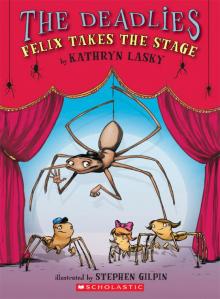 Felix Takes the Stage
Felix Takes the Stage Lucy
Lucy Lone Wolf
Lone Wolf Broken Song
Broken Song The Shattering
The Shattering The Crossing
The Crossing May
May Chasing Orion
Chasing Orion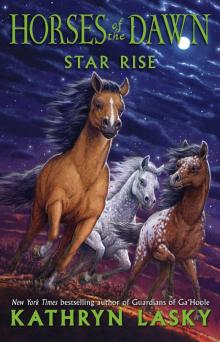 Star Rise
Star Rise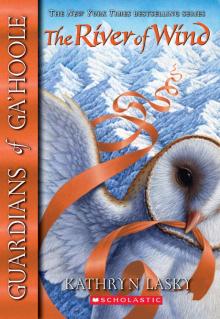 The River of Wind
The River of Wind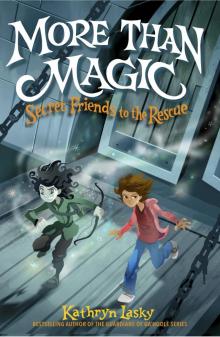 More Than Magic
More Than Magic Born to Rule
Born to Rule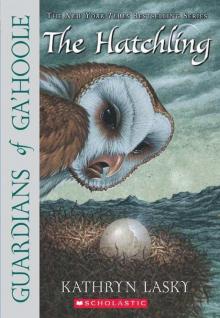 The Hatchling
The Hatchling The Rescue
The Rescue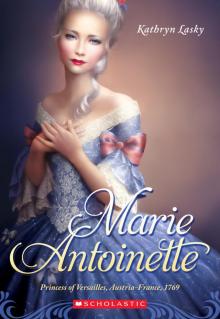 Marie Antoinette: Princess of Versailles, Austria - France, 1769
Marie Antoinette: Princess of Versailles, Austria - France, 1769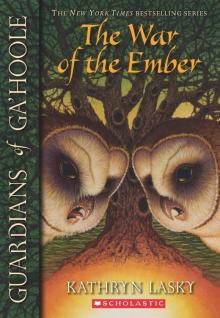 The War of the Ember
The War of the Ember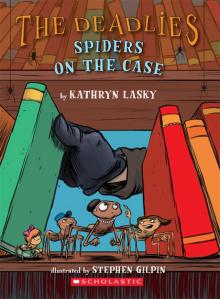 Spiders on the Case
Spiders on the Case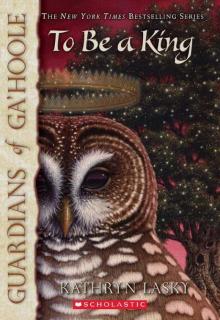 To Be a King
To Be a King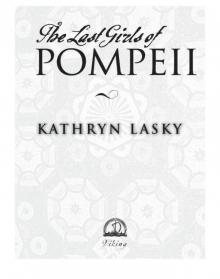 The Last Girls of Pompeii
The Last Girls of Pompeii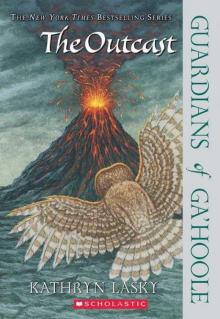 The Outcast
The Outcast Exile
Exile Night Witches
Night Witches Spirit Wolf
Spirit Wolf The Quest of the Cubs
The Quest of the Cubs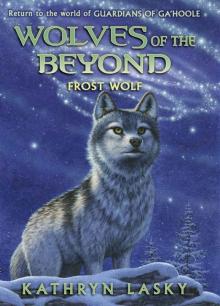 Frost Wolf
Frost Wolf The Keepers of the Keys
The Keepers of the Keys The Extra
The Extra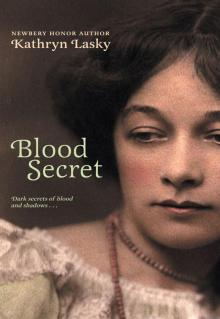 Blood Secret
Blood Secret Watch Wolf
Watch Wolf Blazing West, the Journal of Augustus Pelletier, the Lewis and Clark Expedition
Blazing West, the Journal of Augustus Pelletier, the Lewis and Clark Expedition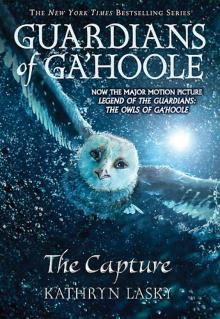 The Capture
The Capture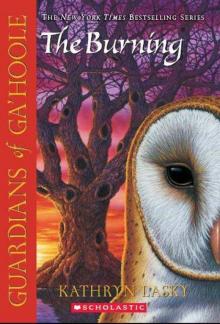 The Burning
The Burning The Journey
The Journey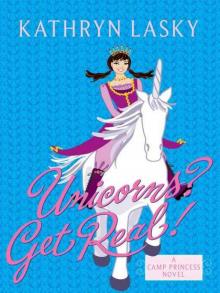 Unicorns? Get Real!
Unicorns? Get Real! The Escape
The Escape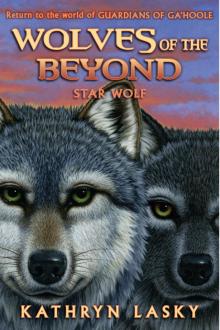 Star Wolf
Star Wolf Ashes
Ashes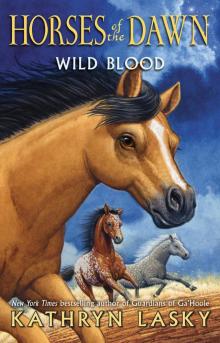 Wild Blood
Wild Blood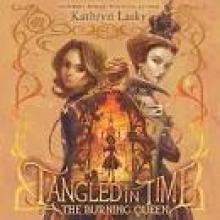 Tangled in Time 2
Tangled in Time 2 The Siege
The Siege Hannah
Hannah Elizabeth
Elizabeth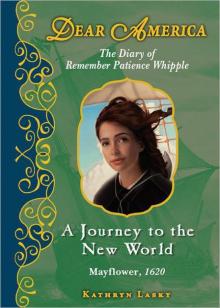 A Journey to the New World
A Journey to the New World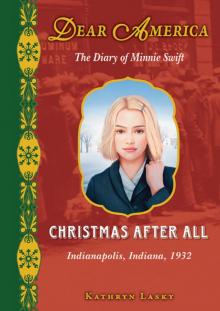 Christmas After All
Christmas After All Mary Queen of Scots
Mary Queen of Scots